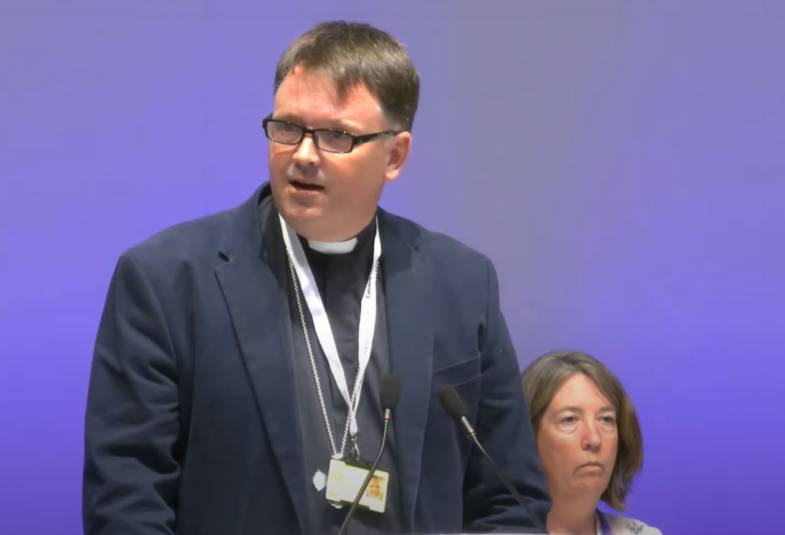08/07/2022

The Routemap to Net Zero Carbo by 2030 published last month, encourages cathedrals, churches, schools and theological education institutions to make changes to their day-to-day activities to reduce carbon emissions.
In February 2020, General Synod voted to adopt the ambitious target of 2030, and following a widespread consultation with parishes, dioceses, cathedrals, and the wider Church, the Routemap was drawn up by members of the Environment Working Group.
Included are explanations of simple changes which can be made, such as fixing basic insulation gaps or switching lightbulbs.
Members of the Synod are currently meeting in York for the first time since the beginning of the Covid-19 pandemic.
Introducing the motion, the Bishop of Norwich, Graham Usher, the Church of England’s lead Bishop for the Environment, said: “The 2030 target is hugely ambitious, but the process is as important as the target.
“This work is central to our story with God and creation; central to our story about God and creation.
“And I see it as a key part of our obedience to God’s call to be stewards of creation.
“The Routemap before you has been refined in consultation. It’s a pragmatic, it’s a step-by-step approach.
“It charts the territory into an unknown landscape, with the best knowledge that we currently have.
“But no doubt it will need to flex and adapt as the wider picture changes in the coming years.
“It focuses first on simple steps that every church community can take. Changing to LED lighting on a renewable energy tariff, reducing draughts, good maintenance - each has a part of how we live this out especially for our rural churches.
“As does heating people, rather than the angels carved on our church roof bosses.
“If we think of reaching net zero as a list of 10 things, eight of them are fairly straight forward and let’s work together on the other two.”
Synod was shown a short film highlighting successful examples of net zero carbon churches and schools. It came from a series of short films which show projects from across the country, ranging from heat pumps in rural Cumbria to solar panels in central London.
They also include net zero carbon schools like St Andrew’s School, Chedworth, Gloucestershire, which has installed solar panels and an air-source heat pump, and Newcastle Cathedral which has installed a new, sustainable, heating system.
Approved by Synod, the Routemap is not legislative and does not obligate any part of the Church but is the basis of the road to net zero carbon by 2030.
More information
The full motion (GS 2258), approved by Synod, was:
‘That this Synod, having recognised that the global climate emergency is a crisis for God’s creation, and a fundamental injustice, and following General Synod’s motion passed in February 2020 to plan to reach net zero carbon by 2030:
- endorse the “Routemap to Net Zero Carbon by 2030” (GS 2258);
- request every Diocesan Synod to debate the Routemap as it applies to their structures, parishes and BMOs, and to agree a feasible programme of action towards achieving net zero carbon by 2030;
- request high energy users within the Church (every cathedral, TEI, school, office and the top 20% of energy-consuming churches) to similarly draw up a programme of action, with a clear time frame, based on the Routemap;
- call on the Environment staff team to report back to Synod on progress against the Routemap in 2025, 2028 and 2031, and for reports on the Church’s carbon emissions every year.”
During the February meeting of Synod, members supported legislative changes which helped churches meet carbon reduction targets.